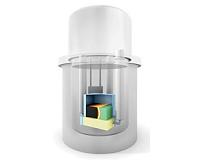 |
New Delhi (AFP) March 24, 2010 US nuclear firms looked poised to benefit from a 2008 deal that threw open India's promise-filled atomic market, but instead are watching from the sidelines as French and Russian rivals cash in. The 2008 deal, pushed through by former president George W. Bush, eased a three-decade international embargo on the sale of nuclear technology to India imposed after the country's first nuclear test in 1974. Bush's secretary of state, Condoleezza Rice, predicted that New Delhi would buy at least eight nuclear reactors by 2012, providing up to 20,000 direct and indirect jobs in the United States. The US-India Business Council estimated atomic energy business over the next 30 years would reach 150 billion dollars, after Bush overcame political objections over India's refusal to sign the Non-Proliferation Treaty. But while the potential remains, companies including Westinghouse and GE-Hitachi are stuck at a red light awaiting legislation in New Delhi that would limit their liabilities in the event of an accident. In the meantime, their Russian and French competitors are mopping up deals with India's government, which is desperate to increase electricity generation to ease blackouts that regularly paralyse large parts of the country. "We are yet to see investment from US firms since these are all privately owned and will not be able to invest till there is nuclear liability legislation framework existing in India," said Rajesh Menon, who heads the Confederation of Indian Industry's power and energy office. In a further blow last week, Indian Prime Minister Manmohan Singh had to backtrack from submitting the draft nuclear liability law in parliament because of fierce political objections. The opposition has targeted clauses that hold the Indian operator, and not foreign equipment suppliers, responsible for any accidents. Compensation claims are also capped at five billion rupees (100 million dollars). Lalit Mansingh, former Indian ambassador to Washington, said Russia and France were unconcerned by the absence of the law since their companies were state-owned. "So in the event of a claim, they are covered by their governments," he said. France's Areva signed a draft accord with the state-run Nuclear Power Corporation of India in February last year to sell two to six reactors, worth an estimated four to six billion euros (5.2-7.8 billion dollars) each. And earlier this month, India's old Cold War ally Russia, which is already building two nuclear reactors in southern India, won a huge new deal for state-owned Rosatom to construct at least a dozen more in the next decade. S.K. Malhotra, spokesman for the Department of Atomic Energy which oversees the signing of all deals, stressed the Russian and French companies were not being "favoured". "The only considerations are whether the firm can provide us with the best technology and the cheapest power that we can sell to our people," he said. Westinghouse declined to comment when contacted by AFP. GE-Hitachi, an alliance between General Electric and the Japanese group, did not respond to enquiries. India, Asia's third-largest economy which remains dependent on oil imports for 70 percent of its energy needs, is on the hunt for new sources to fuel its rapid growth. At present, the country operates 17 reactors that produce 4,500 megawatts of power -- just four percent of the total energy from all sources. The government aims to boost nuclear capacity to at least 10,000 megawatts by 2020. Indian analysts pointed to other roadblocks for US nuclear firms, in addition to the delayed liability law. The slow pace of talks with Washington for a pact allowing India to reprocess spent nuclear fuel is another problem. The Indian government is also seen as troubled by doubts over the reliability of US firms, which have in the past abruptly cut off supplies and technology support. For example, companies severed ties after Washington imposed sanctions in the aftermath of India's 1974 and 1998 nuclear tests, said Mansingh. "We have repeatedly seen that US companies are prevented from fulfilling their contracts due to congressional legislation," he said.
Share This Article With Planet Earth
Related Links Nuclear Power News - Nuclear Science, Nuclear Technology Powering The World in the 21st Century at Energy-Daily.com
 Bill Gates-Toshiba talk nuclear power
Bill Gates-Toshiba talk nuclear power Tokyo (UPI) Mar 24, 2009 Japan's Toshiba and TerraPower, a company backed by Microsoft Chairman Bill Gates, are in talks about a nuclear power venture. Gates is the principal owner of TerraPower, a spinoff from Seattle's Intellectual Ventures, founded by former Microsoft Chief Technology Officer Nathan Myhrvold. The company explores ways to improve emission-free energy supplies through small nuclear reactors. / ... read more |
|
| The content herein, unless otherwise known to be public domain, are Copyright 1995-2010 - SpaceDaily. AFP and UPI Wire Stories are copyright Agence France-Presse and United Press International. ESA Portal Reports are copyright European Space Agency. All NASA sourced material is public domain. Additional copyrights may apply in whole or part to other bona fide parties. Advertising does not imply endorsement,agreement or approval of any opinions, statements or information provided by SpaceDaily on any Web page published or hosted by SpaceDaily. Privacy Statement |